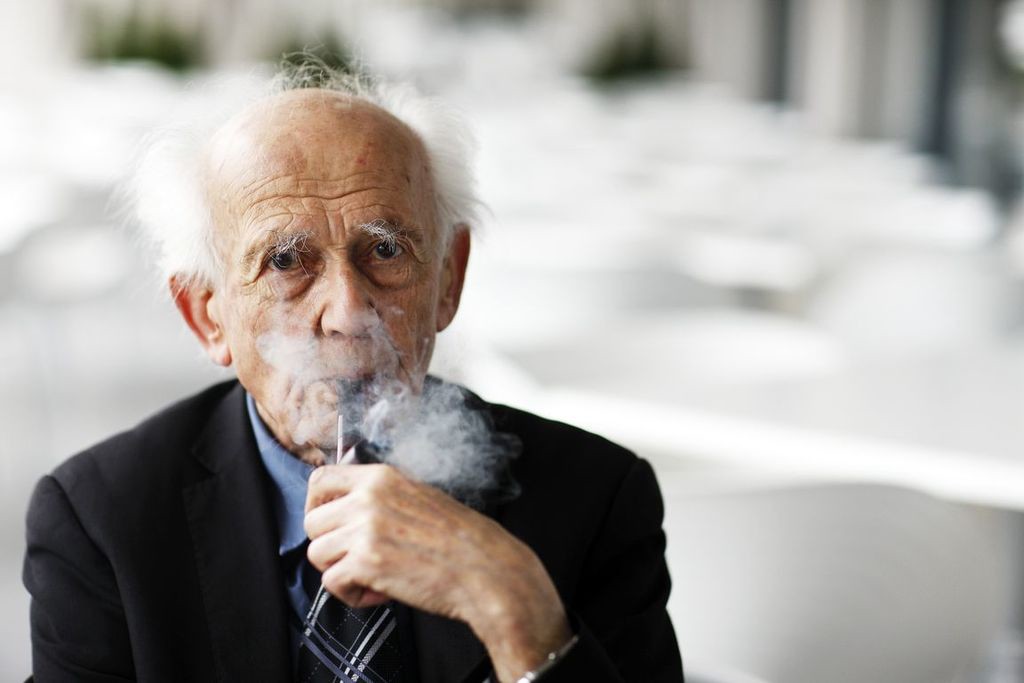Zygmunt Bauman, the Polish sociologist and a major public intellectual, is dead at 91 – or, as his widow put it, he has changed his place of residence “to liquid eternity.”
According to The New York Times, “The Polish-born left-wing thinker’s works explored the fluidity of identity in the modern world, the Holocaust, consumerism and globalization.” The article continued:
Renowned for an approach that incorporated philosophy and other disciplines, Bauman was a strong moral voice for the poor and dispossessed in a world upended by globalization. Whether he was writing about the Holocaust or globalization, his focus remained on how humans can create a dignified life through ethical decisions.
He wrote more than 50 books, notably “Modernity and the Holocaust,” a 1989 release in which he differed with many other thinkers who saw the barbarism of the Holocaust as a breakdown in modernity. Bauman viewed the mass exterminations of Jews as the very outcome of such pillars of modernity as industrialization and rationalized bureaucracy.
“It was the rational world of modern civilization that made the Holocaust thinkable,” Bauman wrote.
In the 1990s, Bauman coined the term “liquid modernity” to describe a contemporary world in such flux that individuals are left rootless and bereft of any predictable frames of reference.
In books including “Liquid Times” and “Liquid Modernity” he explored the frailty of human connection in such times and the insecurity that a constantly changing world creates.
Read the NYT obituary here. Or, from a more insightful Polish perspective, you might try this piece by Polish scholar Artur Sebastian Rosman over at his blog, Cosmos the in Lost:
His Liquid Modernity might be the single best description of the world we inhabit where all that is solid melts into thin air. The center does not hold, but Bauman is a sure guide to understanding what all that means. What Liquid Modernity describes, and it is something I’ve briefly discussed before, is not an academic exercise, but something that affects not only the present, but also the collective future. I cannot recommend this work highly enough if you feel confused about the world we inhabit and where it is heading. If you can’t relate to this feeling of vertigo then you probably have some bigger problems.
But I don’t want to dwell on psychoanalyzing you, nor on the details of liquid modernity (which you can explore here); nor on Bauman’s period of zealous Stalinism (I believe in Kołakowski’s dictum from Metaphysical Horror, “A modern philosopher who has never once suspected himself of being a charlatan must be such a shallow mind that his work is probably not worth reading.”); instead, a couple days after Bauman’s death (I’m not a fan of the euphemism “passing,” because it lacks substance), I’d like to share the following passage from Of God and Man, since it hopes for a more humane future: “You are right (and deserve credit) when observing that, one way or the other, we somehow possess this world, and, from time to time, here and there, are even able to change at least a small part of it for the better. Given that this world of ours is still in the making, the act of its creation yet incomplete, and the work of continuing the creation and its completion has (to recall our earlier conversations) fallen to us, then it is right for us – as for any responsible host – to care for its well-being and attend to its goodness and beauty. I will repeat again Camus’ credo: there is beauty, and there are the humiliated. God grant that I never be unfaithful to the one or the other.”
Read the whole thing here. Or watch the video, “No one is in control. That is the major source of contemporary fear,” below:
Tags: Artur Sebastian Rosman, Leszek Kołakowski, Zygmunt Bauman


